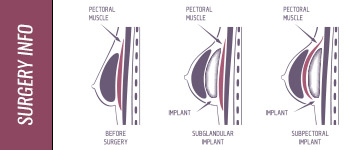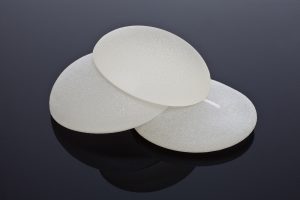Cosmetic surgery used to be almost a female-only province, but that picture is rapidly changing. According to the American Society for Aesthetic Plastic Surgery (ASAPS), the number of men who are having cosmetic procedures has increased dramatically in the past 10 years. From 1997 to 2001, the rate of increase in male cosmetic surgery was 256 percent. In 2004 alone, 1.2 million procedures were performed on men—a rise of 16 percent since 2000. Presently, 13 percent of cosmetic surgery patients in the United States are male.
The American Society of Plastic Surgeons (ASPS) reported that the top five types of cosmetic surgery chosen by men in 2004 were rhinoplasty (nose reshaping), hair transplantation, blepharoplasty (eyelid surgery), liposuction (removal of fat by surgical suction), and breast reduction. ASAPS statistics for men showed the same top five procedures, but in a slightly different order, with liposuction taking first place. Men typically choose liposuction to reduce fat deposits in abdominal areas (love handles and beer bellies) that they haven’t been able to eradicate by diet and exercise alone.
What motivates men to have cosmetic surgery? Some view it as a means of staying competitive in a job market that increasingly values youth and good looks. Brad, a 53-year-old account executive in a leading financial services company, opted for a blepharoplasty when he started feeling self-conscious about his “hang-dog” look caused by sagging lower eyelids. “I’ve always had bags under my eyes, but they’ve gotten worse in the past few years. It didn’t bother me until people starting asking if I’d had a rough night—when I hadn’t.” After his surgery, Brad reported that he feels more self-assured at work. “I’ve never doubted that I can keep up with the young guys, but now I look like I can.”
For others, like 34-year-old Jeff, cosmetic surgery offers the opportunity to improve features they’ve felt self-conscious about for most of their lives. “It isn’t that I want to look like a movie star or a model; I just want to feel that my looks aren’t working against me,” noted Jeff. After a nose reshaping and chin augmentation, Jeff says his self-confidence has improved markedly.
Cosmetic surgeons note that there are differences between their male and female patients. Men tend to be more hesitant to schedule a consultation, and they are likely to wait longer than women to address concerns about their appearance. Also, it is common for men to request subtle rather than dramatic changes.
A 2005 consumer survey commissioned by ASAPS revealed that 59 percent of the men surveyed approve of cosmetic surgery. Twenty-one percent said they would consider having a cosmetic procedure themselves, and 79 percent wouldn’t mind if other people (in addition to their family and close friends) knew about their cosmetic surgery.
Many plastic surgeons attribute the growing popularity and acceptance of male cosmetic surgery to increased media coverage, which tends to make people less reticent about seeking to improve their appearance.




